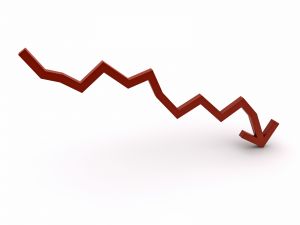
The value of Canadian defined-benefit (DB) pension plans experienced losses in the second quarter of 2015 (Q2) for the first time in two years, according to a new report from Toronto-based Royal Bank of Canada’s (RBC) investor and treasury services division.
DB pension plan assets declined by 1.6% in the most recent quarter, bringing year-to-date total returns to 4.8%. The global economic landscape, especially the deteriorating situation in Greece, and the ongoing fallout from the drop in oil prices has put pressure on pension plan performance over the past quarter, says David Heisz, CEO of RBC Investor Services Trust and RBC Investor and Treasury Services, in a statement.
“Additionally, long-term bond yields trended higher in Q2, retracing to levels seen prior to the Bank of Canada’s [BoC] rate cut in January,” he adds. “While returns on bond holdings have been negatively impacted, the higher yields would have eased the pressure on [DB pension] plans’ solvency ratios as projected liabilities move inversely with long-term interest rates.”
Although Canadian DB pension plans delivered no growth in Q2 2013, the results for Q2 2015 represent the largest decline since the third quarter of 2011, when the value of Canadian DB pension plans fell by 5.5%, according to RBC’s “all plan universe” report, which tracks the performance and asset allocation of more than $650 billion in assets under management in Canadian DB pension plans.
Foreign equities lost 0.8% for Canadian DB pension plans in Q2 as a result of several recurring themes, such as the Greece debt crisis, an improving U.S. economy that faces headwinds from a stronger U.S. dollar and volatility in China’s stock market, the report states. The decline edged the MSCI world index by 0.3%.
Canadian equities also moved backward, losing 1.4% in Q2, with the S&P/TSX composite index falling by 1.6%.
“The decline in oil price levels continued to take a toll on Canadian energy companies, with the energy sector falling by 4.3% in the quarter,” Heisz says. “Prices for gold and base metals also slid on weak demand, and we have yet to see anticipated growth in Canadian exports as a result of the weaker loonie.”
Canadian 10-year yields moved higher in Q2, in line with global interest rates, and Canadian DB pension plans lost 2.1% in this asset class. With the yield curve steepening, the long duration bonds segment had the biggest decline, with the benchmark FTSE/TMX long bond index dropping by 4.6%.
“Short-term yields, on the other hand, fell due to weaker [gross domestic product] numbers and the anticipation of another BoC rate cut,” Heisz says.